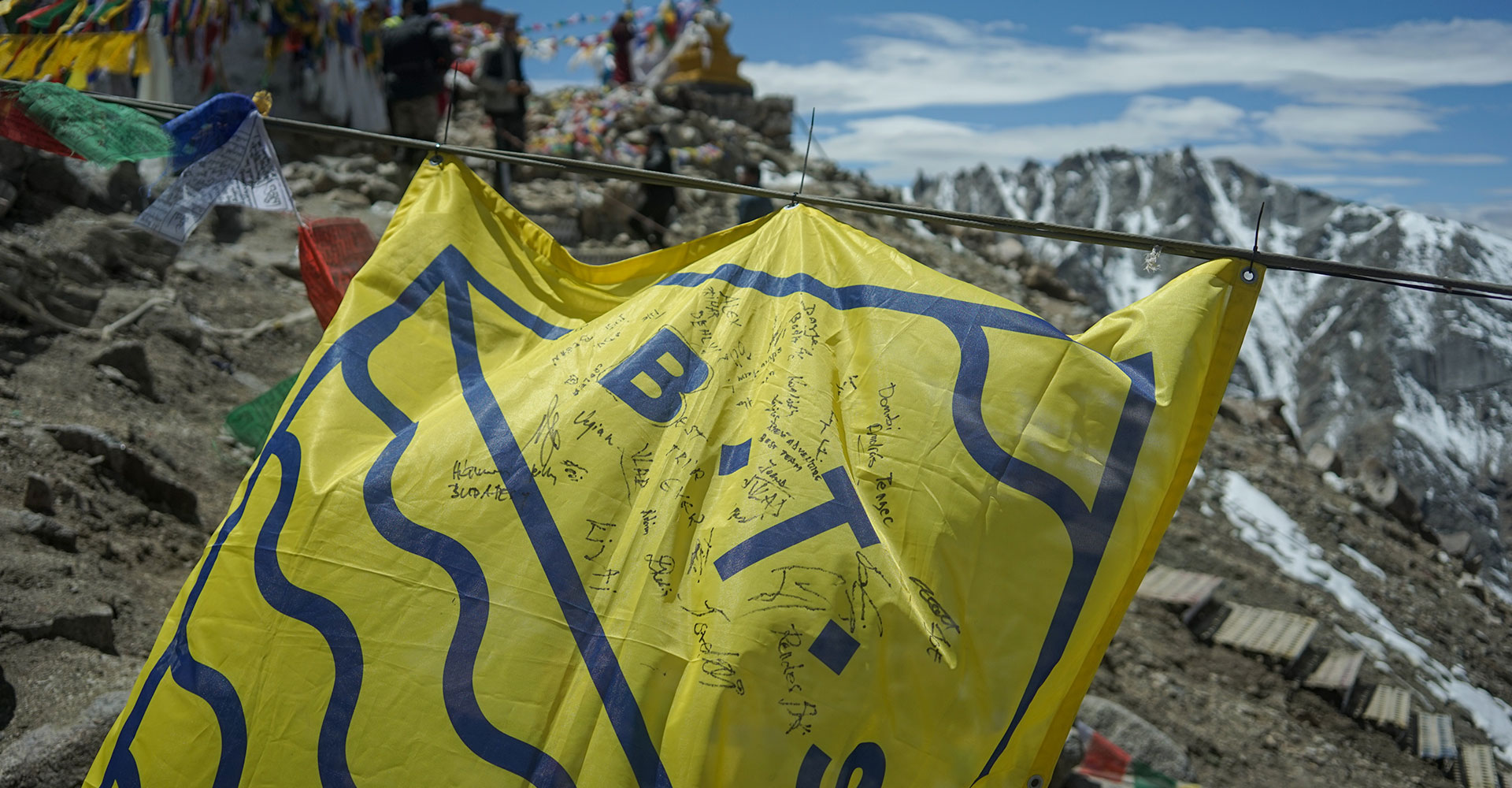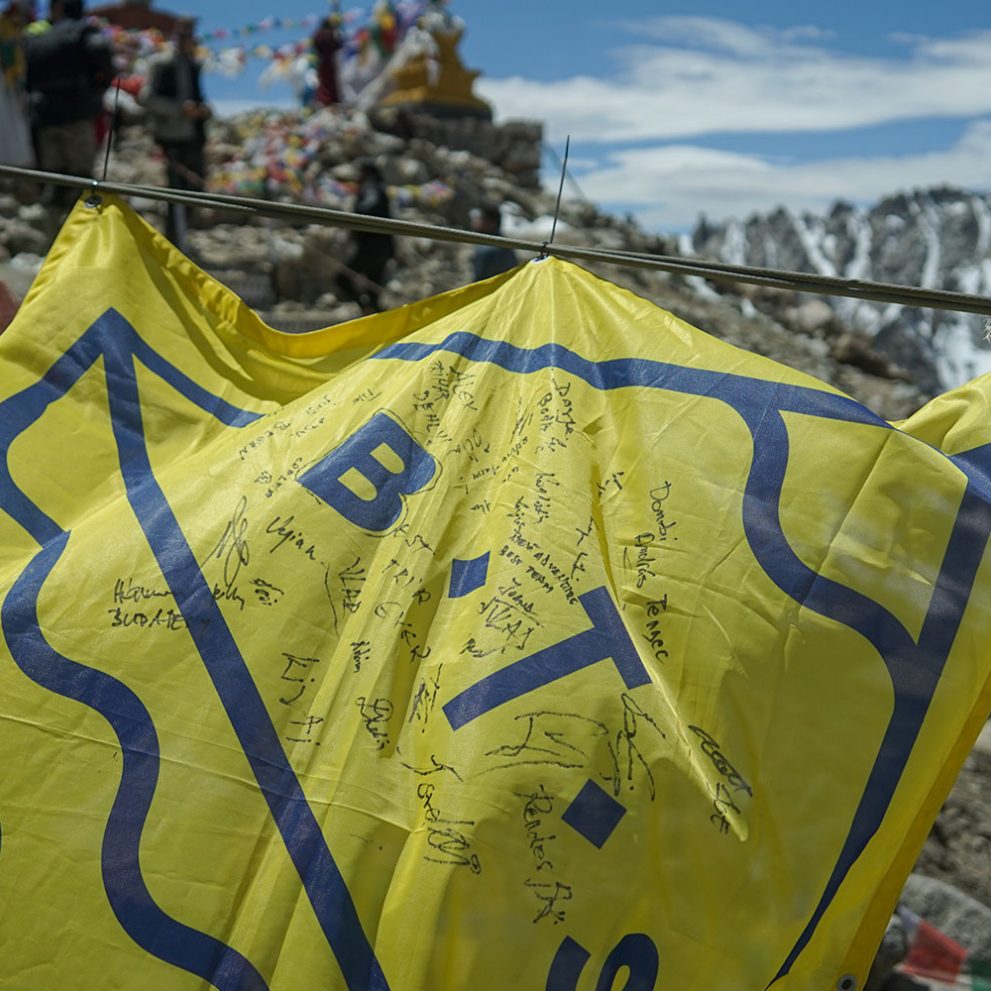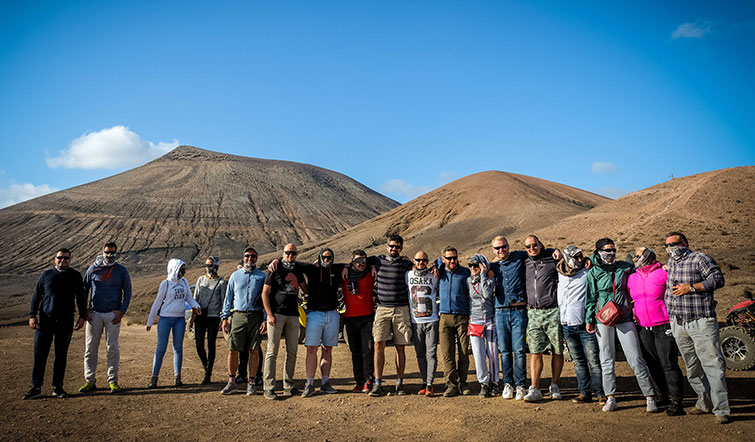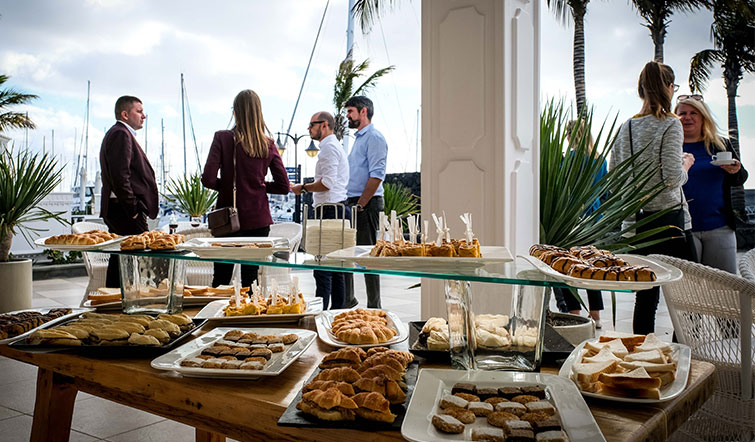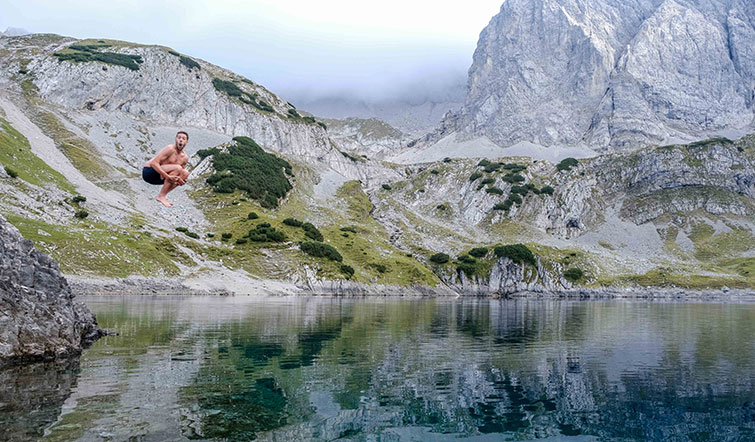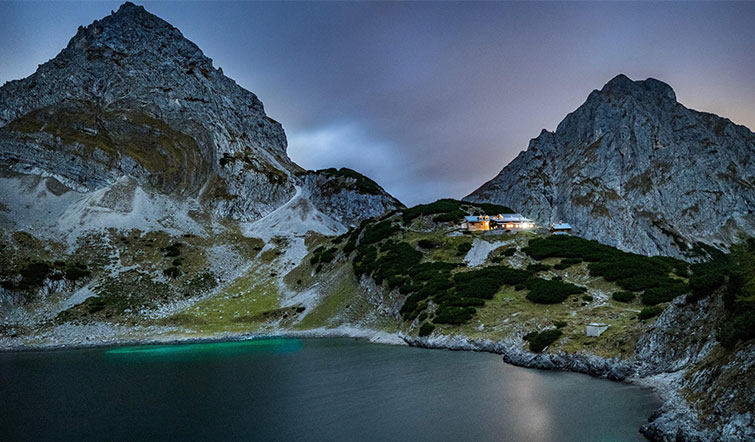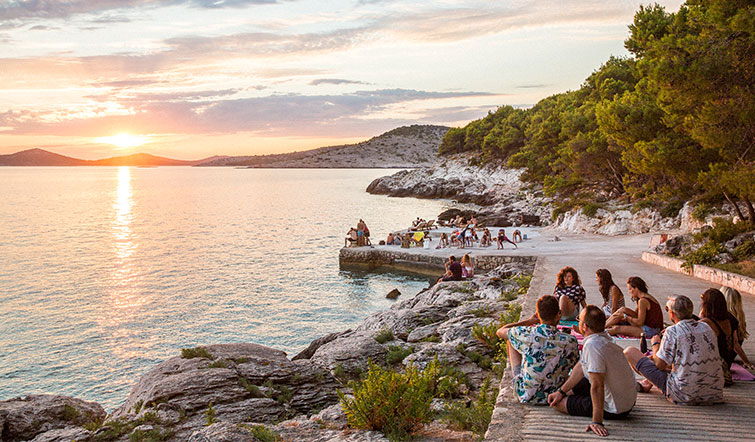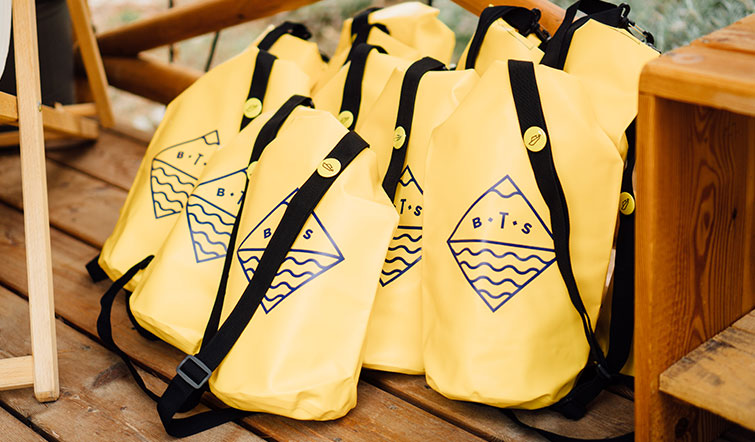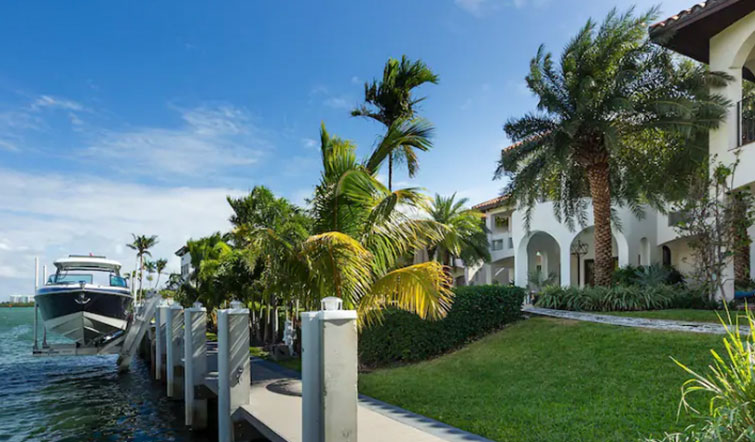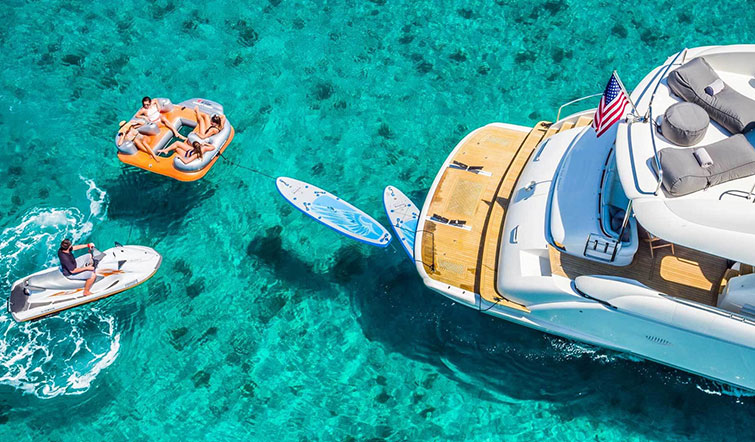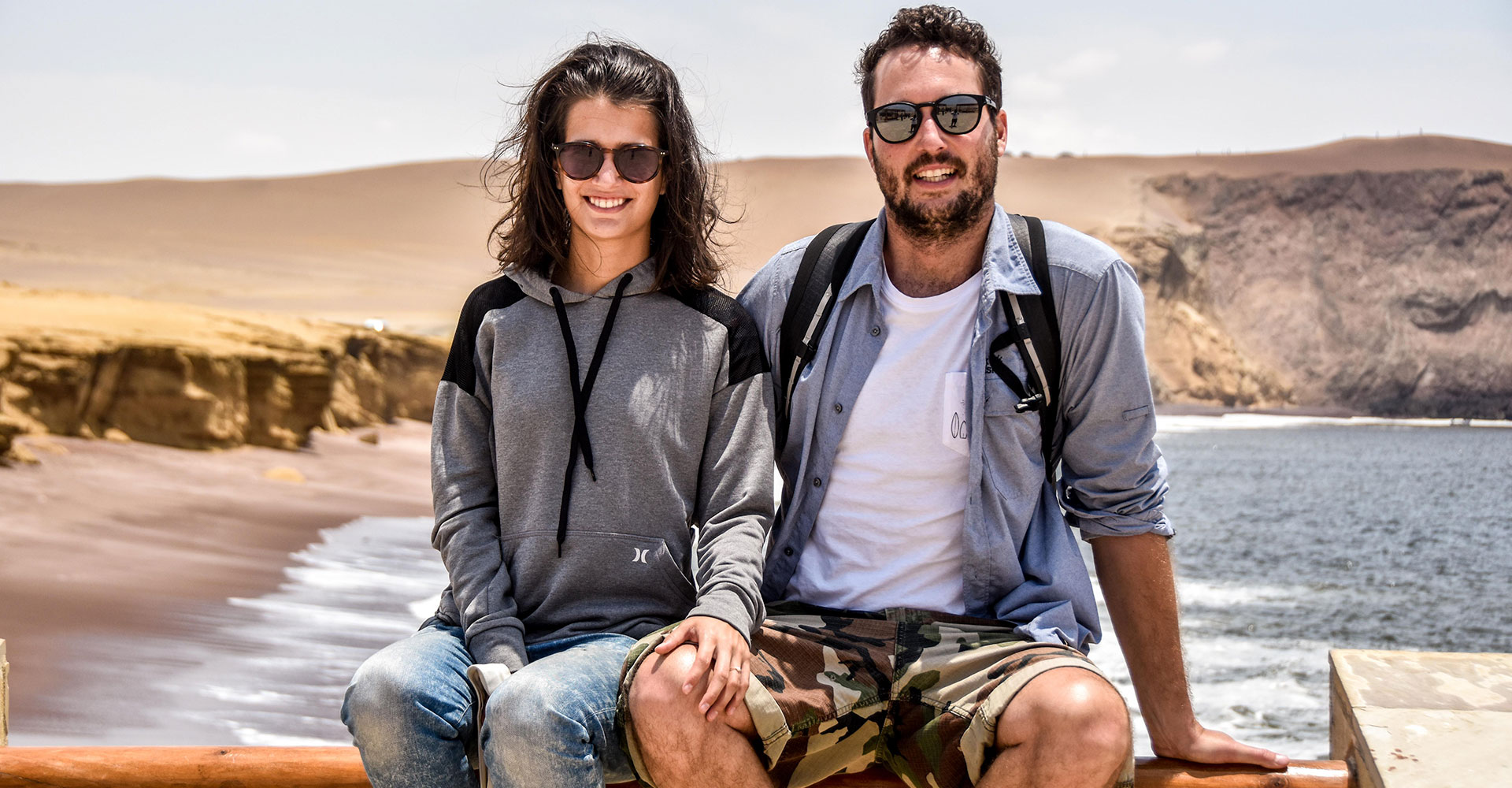
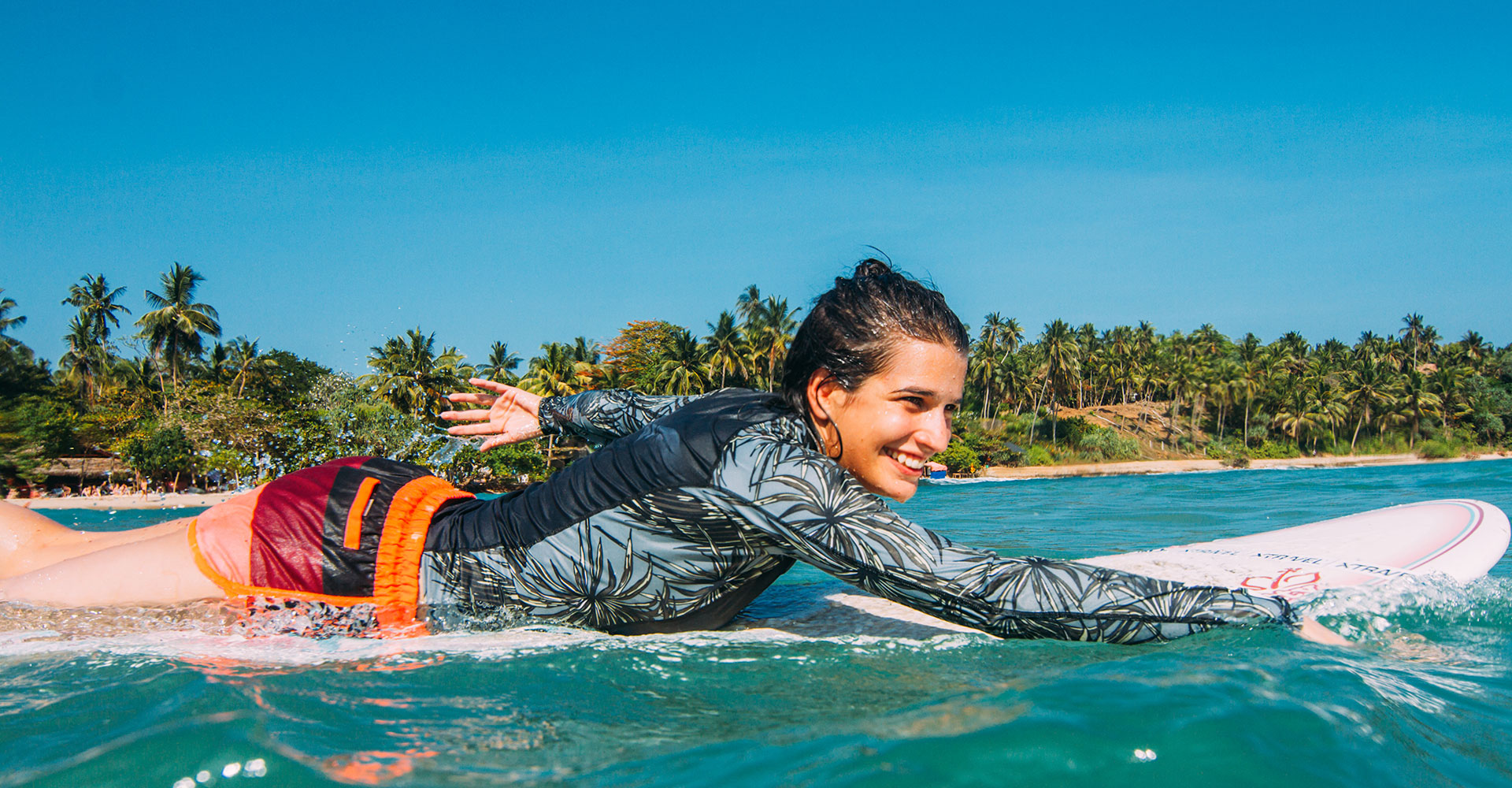
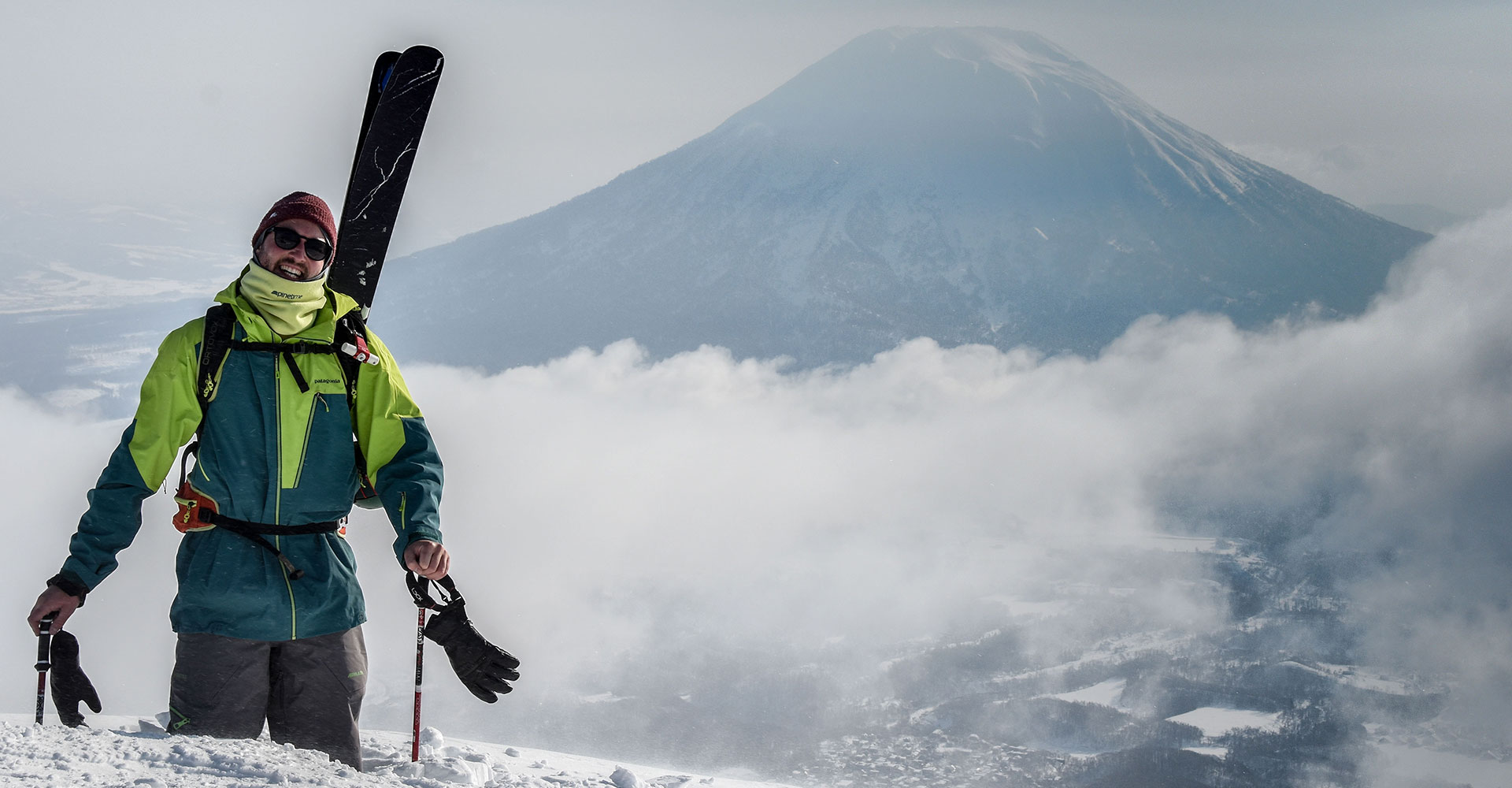
Why did you set up a BTS (GoBeyond) office in Vienna as well?
Janos Benjamin Vertes: There are multiple reasons. On the one hand, we have always wanted our child to be educated abroad. The plan was brought forward by the quarantine in the spring time, which we spent in an Austrian mountain village, where I used to ski a lot (Jano is a seven-time Hungarian freeride ski champion). We stayed in a guesthouse for two months where we asked the owners to let us get registered at their address and they were willing to help. It was during this period that we decided that we would rather live in Austria. It wasn’t easy to start a company, half a year went by before our company was registered with all the permits. The other reason is that due to the weakening of the forint in the last 2 years, our trips have become more expensive by 15-20%, without us raising the price. The third reason is that Austrians are much more willing to spend on their hobbies. Of course, their income is also better, and their culture includes plenty of outdoor sports, climbing, skiing and motorcycling – and that’s exactly our profile.
How many trips can you organize at the moment? 2020 has been the hardest on tourism…
JBV: Our most productive year so far was last year – we organized 22 trips – so it’s been even worse that this upward flow was broken by the pandemic. But I can say that we still manage to put a lot of trips together, of course it takes a lot more work and perseverance and obviously there aren’t as many tours as last year. For example, we were already deep into the autumn restrictions when it seemed we would have to cancel our surf camp in the Azores, but then we managed to take a group anyway. We just launched our home office trip in Ericeira (Portugal) that has taken place amidst the biggest quarantines and closures. Everyone arrived with a negative PCR test in their pockets and we surfed and worked through the month as one big family. I will still accompany a group of company workers to Istanbul this year, we will also be returning to Portugal on New Year’s Eve, and we would definitely like to put together another tropical destination at the end of the winter as well.
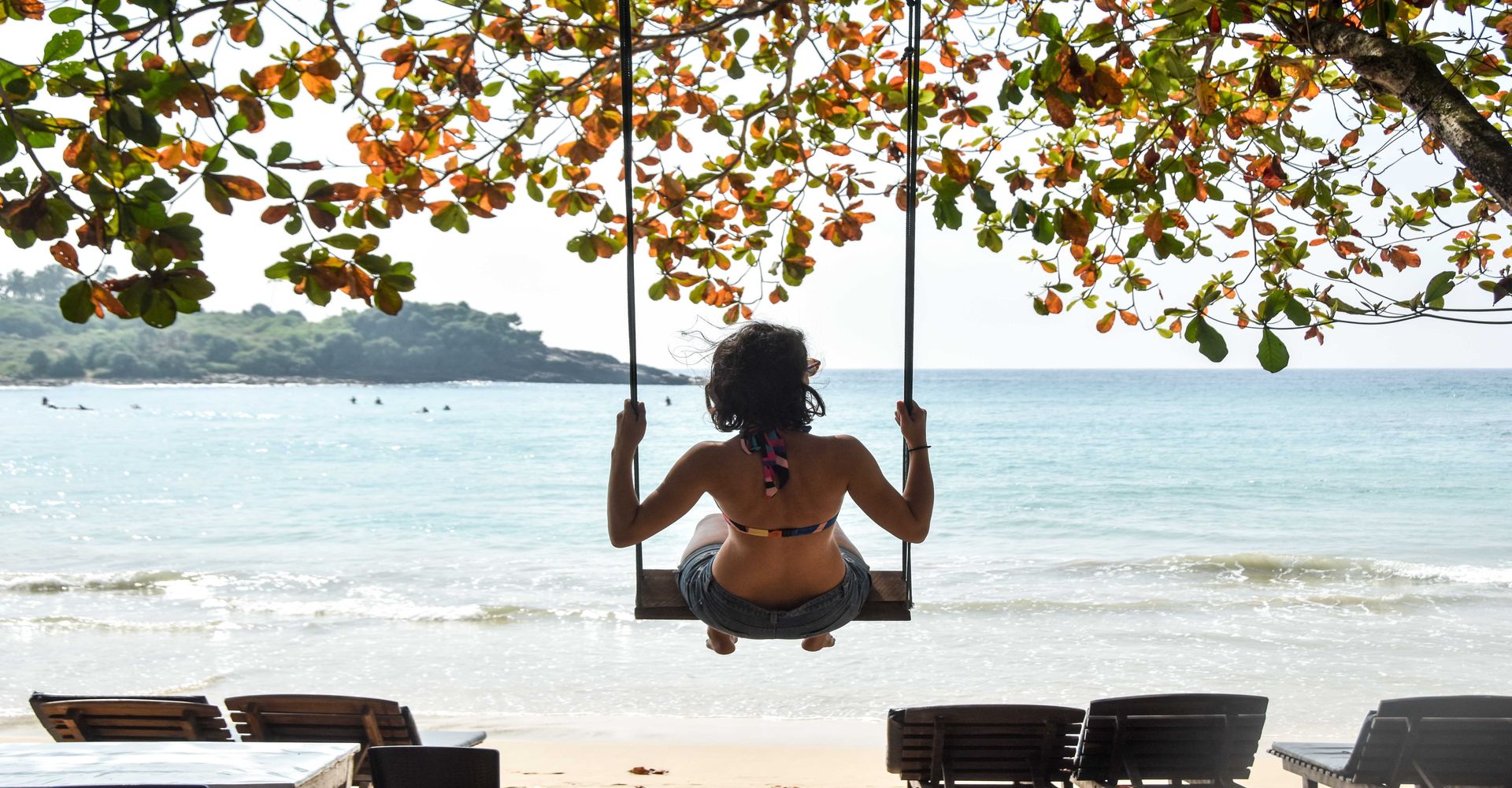
Needless to say, one needs a reliable travel agency to confidently set out for the desired escape tour during the pandemic. What is that extra you provide for your travelers?
JBV: We practically organize everything for our customers, they only have to spend on pleasure items during their vacation.
We organize the sport activities, the accommodations, the excursions, the meals just as much in the Japanes mountains as on the Mongolian steppe.
This requires consultation with each passenger individually, many of whom are of different nationalities and come from different countries. Once we had a group with a total of 8 guests all of them different nationalities. In return for our hard work, however, we see giving them lasting experiences that they never thought they could ever be part of. Our trips are also special in the way that we always have a great group coming together: the common interest and goal, plus the adventures and challenges we experience as a team is what makes the trips unforgettable.
How many things do you need to organize for a more complex trip?
JBV: For example, a 30-person (this is the top limit) motorcycle tour in the Himalayas requires a staff of 10 people. Part of the crew are local tour guides, with adequate local knowledge and contacts. We need universally deployable colleagues who are mechanics but can also provide first aid if needed. Three off-road vehicles are also required for the crew and to transport all the luggage. And of course a lot depends on the local partners, organizing the hiking trails, asking for all the permits are all their responsibility. With this destination for instance, we also have to take it into consideration that there is a motorway that can only be safely ridden for one month a year due to possible harsh weather conditions. Compared to such an adventurous tour made up of many individual participants, organizing a group business trip is in many ways a lot simpler, because there you have to consult with a contact person only and the administration is also much easier, as you do not have to coordinate with 10-12 passengers about their individual needs.
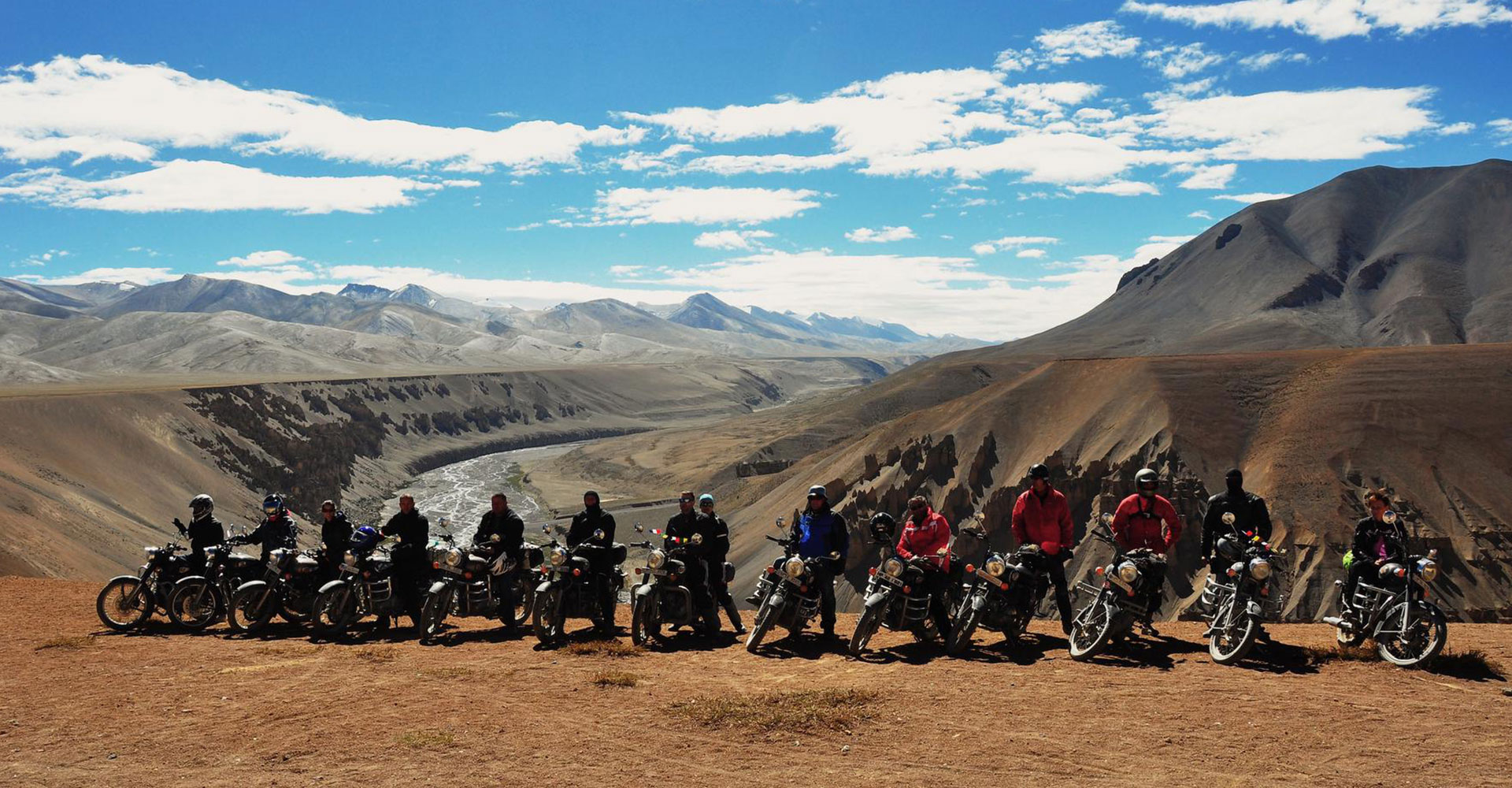
Is it part of your new strategy to organize corporate team buildings?
JBV: Obviously, we also need to adapt to this new situation created by the coronavirus epidemic. Fortunately, business trips can be organized, and there are international companies where it is imperative that executives hold meetings at certain intervals. We want to make companies realize that it can be a good idea to spend some of the money they save on office rent – due to everyone working from home office – on an organized program that creates and maintains group cohesion in the long run. For this purpose, outdoor activities are especially good. On the one hand, it is a lot safer regarding spreading the virus, and on the other they can learn something new together, like surfing. And these shared experiences act as an intense team building power. An extreme challenge or sports experienced together will definitely bring employees closer who haven’t seen each other in weeks or months.
Tell me, what extreme things did you get business executives do?
JBV: For those who spend little time out of the office, or out of town, it’s already a wonderful and memorable experience to walk barefoot into the sea on Europe’s largest sand dune (near Bordeaux). We also surprised them in Iceland: we rode on the surface of a glacier and then into its stomach with a car that had human-sized wheels. But you can also really impress the management members accustomed to gourmet restaurants with strange and exciting gastro experiences: in Lanzarote, for example, we organized a pop-up dinner in the crater of one of the volcanoes. This was a challenge for the guests and for us, the organizers as well, as we buried two whole goats in the volcanic embers the day before dinner, which the clients had to dig out themselves and consume. For those who did not want to eat meat roasted in volcanic ash, of course we prepared other food options, no one was left hungry. In such a program, you also need to be prepared for things that might not go as planned, such as the meat not cooking properly or it getting burnt – you still need to feed the group.
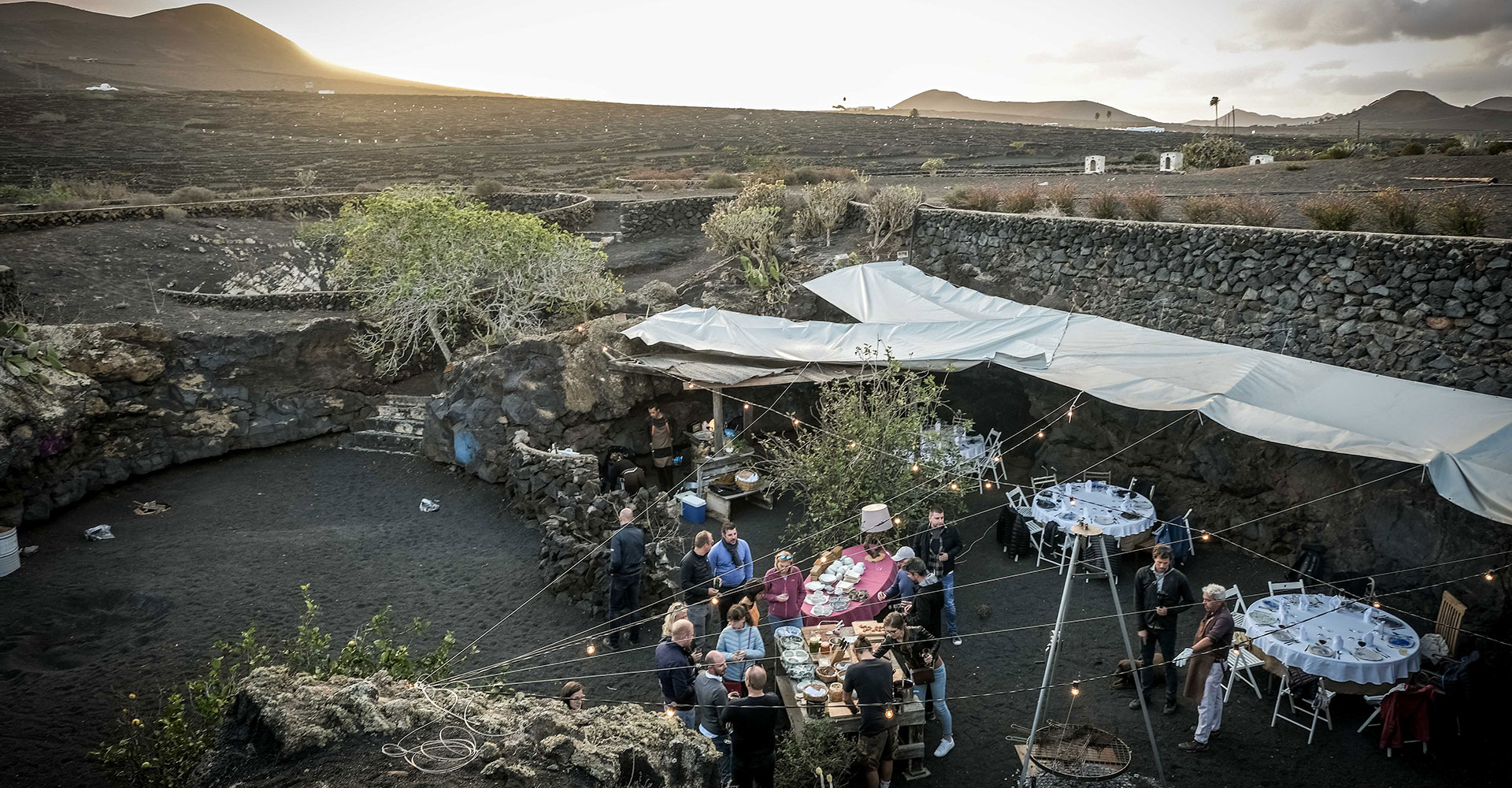
How has your company know-how come about so that you are always prepared for everything, everything is there when you need it?
JBV: In 2009, I went to Asia for a year with a backpack – this trip clicked something in my mind. On the one hand, I realized I wanted to do this as an occupation, on the other there was no situation during that year in Asia I couldn’t resolve. I kept my ”daily job” (Janó used to be the managing director of the Kolor club in Budapest – ed.), and started organizing trips besides that – so I didn’t need an initial investment for our three trips a year. The company has grown organically at its own pace, with more and more tours and more and more passengers. We know all our local partners personally and we have developed a friendly relationship during the many years of cooperation, thanks to which, we have full confidence in them. Fortunately, there has never been a sketchy situation like the local guides would not turn up to welcome our passengers or the ordered vehicles and equipment would not be there.
What tours will you embark on in 2021? What will be in demand in the near future?
JBV: Basically, every new trip or program package is planned by initially exploring the terrain, checking out everything and putting together a ”best of” that fits into a 10-day tour. We want to do a surf tour in Madagascar, and a Kamchatka camp is also in the works, which is pretty much the last, almost untouched wilderness, where you could travel by snowmobile, surf in the 6-degree sea and sleep in igloos. But it’s interesting to see what new doors this new life situation will open up in tourism: for example, we have an Israeli surfer partner with whom we are organizing a cruise in the Maldives in April. Guests will live on a three-story luxury yacht and navigate to where the waves are forecast to be the best. Passengers do not moor with the boats, and since the yachts are closed, they do not meet strangers, so there is no risk of infection and the authorities do not restrict this type of tourism – so new opportunities must be sought in a crisis.
We can find a solution by adapting to the need and circumstances.
With increased care, flexibility and careful organization, you can still travel safely. And the demand to discover the natural wonders of the world is greater than ever.
The original interview appeared on drivemagazine.eu.
